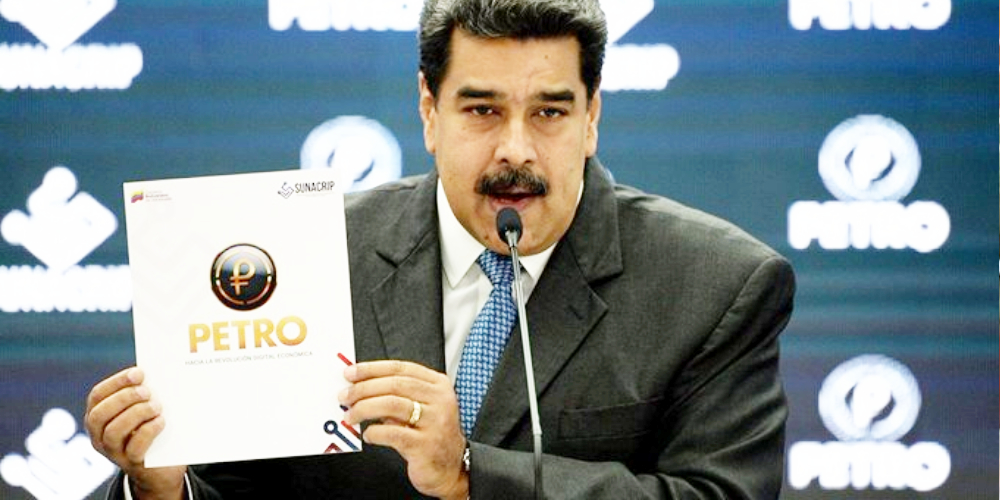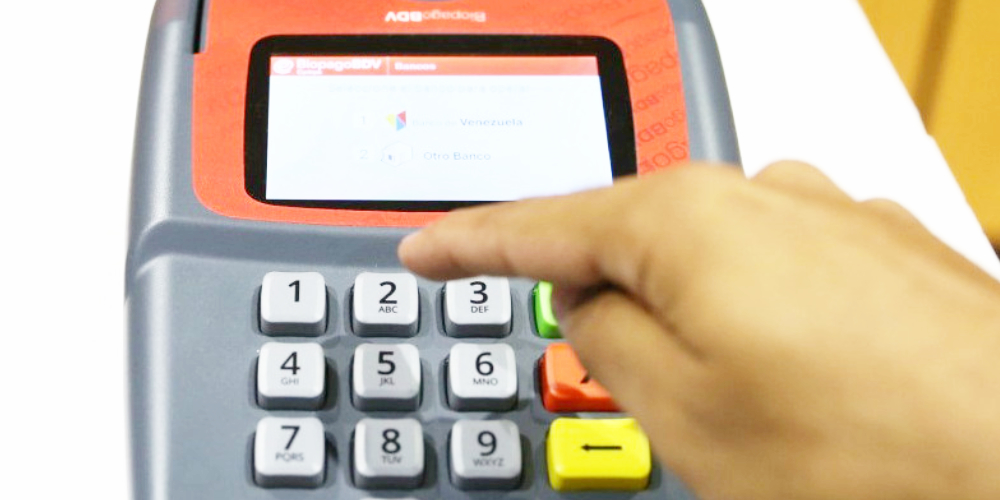According to the Venezuelan government, millions of families have used the petro, the country’s national digital currency, to pay for goods and services. As shoppers rush to spend their coins, merchants are reportedly struggling, effectively forced to sell goods at a deep discount. At least one merchant is said to have been arrested.
Also read: Regulatory Roundup – China Blockchain ETF, New French Crypto Rules, Tokens Money in Russia
Petro Adoption Rises
The Venezuelan government announced on Jan. 4 the successful use of the petro (PTR) for payments between Dec. 18 and Jan. 3. According to the announcement, 2,585,755 transactions were conducted using Biopagobvd, the biopayment system of the Bank of Venezuela which allows people to pay with petros at stores. The government also claims that 1,233,093 people paid with the digital currency at 7,422 stores throughout the national territory during that time period. In addition, Maduro said on Jan. 1 that almost 6 million families have used the petro as a payment method.
The Bank of Venezuela, in collaboration with the National Superintendence of Cryptoassets and Related Services (Sunacrip) and the Patria platform, is now making “improvements in its systems for more efficient use of the petro wallet.” The payment system is currently offline for maintenance from Jan. 4-10 “for the adoption of new applications and options,” the Venezuelan government detailed.

The government gave half a petro to 3.5 million public workers and 4.5 million pensioners in December to test the use of the petro for payments. On Dec. 23, Maduro announced that Venezuelans could acquire goods and services in authorized stores using the digital currency assigned through the country’s card.
Merchants Forced to Accept Petros, Effectively Selling Goods at Discount
The situation is reportedly not rosy for merchants. According to Purse.io’s head of support, Eduardo Gomez, “The merchants are forced to accept the petro as payment at a fixed rate (2.5 million VES/PTR), whereas you can buy the token in the open market for as low as 1 million VES/PTR.” The Venezuelan explained on Dec. 29:
In other words, you can get a 50% profit by buying cheap petro and spend it at the merchants.
Subsequently, “The orderbooks in exchanges that trade petro are full in the sell-side and empty in the buy-side,” Gomez continued. “People get a subsidy in the form of a shitcoin in a depressed economy, and merchants are forced to accept the worthless token.”
When customers pay with the petro, merchants do not receive the digital currency, however. The Biopago system converts petros into bolivars (BsS) at a set exchange rate and pays the merchants in BsS. The Bank of Venezuela repurchases customers’ petros at its own set rate. Merchants receive petros thinking they are worth $60 a coin. However, according to a calculation by one Twitter user, they actually receive approximately $38.2 worth in bolivars per petro after conversion.

Merchants Prohibited to Raise Prices for Petro Payments
To stay afloat, merchants have been adding commissions to petro payments made using the Biopago system. Following many complaints of merchants charging commissions and raising prices for accepting petros, Sunacrip issued a warning that transactions using the Biopago system should not incur any commission. Furthermore, merchants do not have the authority to convert PTR to bolivars. Another Twitter user said that in one area:
They [merchants] charge between 25% and 40% more when you pay with petros.
At least one merchant has been arrested for charging a commission on petro payments, reported journalist Humberto Ambrosino. Ángel Ernesto Torres Montañez (32), the owner of the “Su Carrito” store in the city of Barquisimeto, was arrested by the Criminal Investigation Service (Sipel) of the Lara state police. The authorities received complaints that this store charged 20% for petro payments using the Biopago system.

“People will likely buy PTR to spend it, driving the price up until there’s equilibrium,” Gomez opined. “High ranking government officials will take the opportunity to offload their petro holdings. Not to mention the incredible money laundering operation they have going on with this thing.” He concluded:
Merchants will go out of stock (and business) selling goods for 50% less of what they are worth. Long queues of people have been popping up to spend the damn thing.
Meanwhile, Maduro continues to push the petro internationally. He said in an interview with Spanish journalist Ignacio Ramonet on Jan. 1 that Venezuela’s oil will be sold in petros this year. In addition to 30 million barrels of Venezuela’s oil, the digital currency is backed by gold, iron and bauxite reserves, Maduro stressed. “We also have a signed contract for the sale of oil, steel, iron, [and] aluminum, and we are going to sell part of the gold production in petros,” he claims. “We are going to sell Venezuelan oil in petros. We are already selling iron and steel of Venezuela in petros.”
What do you think of the situation in Venezuela? Let us know in the comments section below.
Disclaimer: This article is for informational purposes only. It is not an offer or solicitation of an offer to buy or sell, or a recommendation, endorsement, or sponsorship of any products, services, or companies. Bitcoin.com does not provide investment, tax, legal, or accounting advice. Neither the company nor the author is responsible, directly or indirectly, for any damage or loss caused or alleged to be caused by or in connection with the use of or reliance on any content, goods or services mentioned in this article.
Images courtesy of Shutterstock and the Venezuelan government.
Did you know you can buy and sell BCH privately using our noncustodial, peer-to-peer Local Bitcoin Cash trading platform? The local.Bitcoin.com marketplace has thousands of participants from all around the world trading BCH right now. And if you need a bitcoin wallet to securely store your coins, you can download one from us here.
The post Problems Escalate in Venezuela as Millions Rush to Spend Petros appeared first on Bitcoin News.
Powered by WPeMatico
